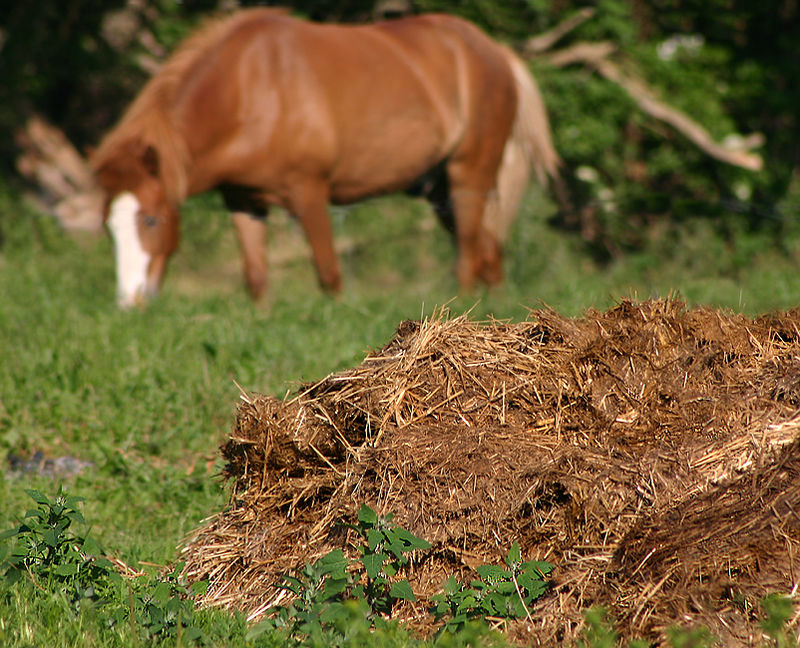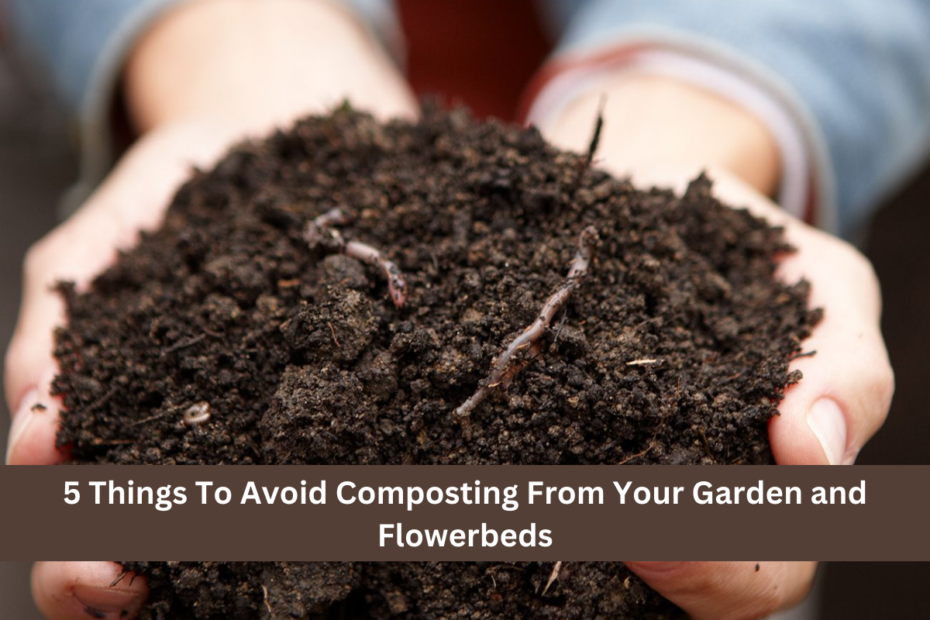5 Things To Avoid Composting From Your Garden and Flowerbeds:-Composting turns garden and kitchen trash into soil-rich organic materials. Not all garden and flowerbed waste can be composted. Avoid adding some materials to your compost pile to keep it healthy and avoid issues. Here are five composting mistakes to avoid from your yard and flowerbeds:
5 Things To Avoid Composting From Your Garden and Flowerbeds
Garden and kitchen waste becomes soil-rich organic matter through composting. Some garden and flowerbed debris cannot be composted. Skip these products to maintain your compost pile healthy and problem-free. Here are five yard and flowerbed composting blunders to avoid:
1. Diseased Plants

No, not at all? When you have plants in your compost pile that are unhealthy, it is possible for infectious diseases and pests to be passed on to subsequent plants in the pile.
Due to the fact that compost can harbor a broad variety of illnesses and pests, it is possible for gardening outbreaks to be produced by compost that has not been broken down sufficiently.
It is recommended that sick plants be disposed of by throwing them away in the garbage or taking them to a green waste collection agency.
Utilizing a heated composting system is another option to take into consideration if you want to get rid of the bacteria that are found in materials that are potentially harmful.
2. Weeds with Seeds or Tough Roots

Weeds that are tough or seed-grown can grow in compost and garden beds, thus it is important to avoid them. It is possible that composting these weeds will not obliterate the seeds or roots, so allowing them to return to your garden.
As an alternative, you should remove weeds from your garden beds and either burn them or throw them away in green rubbish.
Your compost pile should be kept at high temperatures for a sufficient amount of time to kill seeds and roots if you are going to compost weeds. Aeration and turning should be performed on a regular basis.
3. Non-Biodegradable Materials

A few examples of things that should be avoided in compost are plastic bags, rubber bands, and synthetic textiles. These materials do not decompose. A mess may be created by these materials, and there is a possibility that dangerous chemicals will be released into your compost and soil.
What You Should Do Instead: Make sure that your compost does not contain any components that are not biodegradable by limiting it to natural and organic trash. In the event that you forget to include these materials, you should remove them as quickly as possible in order to preserve the quality of your compost.
4. Animal Manure from Carnivores

Why You Should Stay Away: Carnivorous animal dung may contain pathogens and parasites that are harmful to both plants and people. If pathogens in compost are able to survive the methods that are typically used in composting, they can create health concerns.
Consider using the excrement of herbivorous animals such as cows, horses, or chickens instead. This type of dung has less germs and composts more effectively. To limit the number of pathogens, make sure that the manure is well-composted and heated.
5. Chemically Treated Plants or Materials

As a result of the fact that chemically treated plants, herbicides, and fungicides have the potential to contaminate your compost, you should avoid utilizing them. Following the composting process, these compounds have the potential to cause harm to the soil as well as the plants of your garden.
Composting plant material that has not been treated should be practiced instead. It is not appropriate to compost plants that have been treated with chemicals; rather, they should be thrown away. Taking these steps will guarantee that your compost will continue to be safe and beneficial to your garden all the time.

Hi ahrcc.in admin, You always provide practical solutions and recommendations.